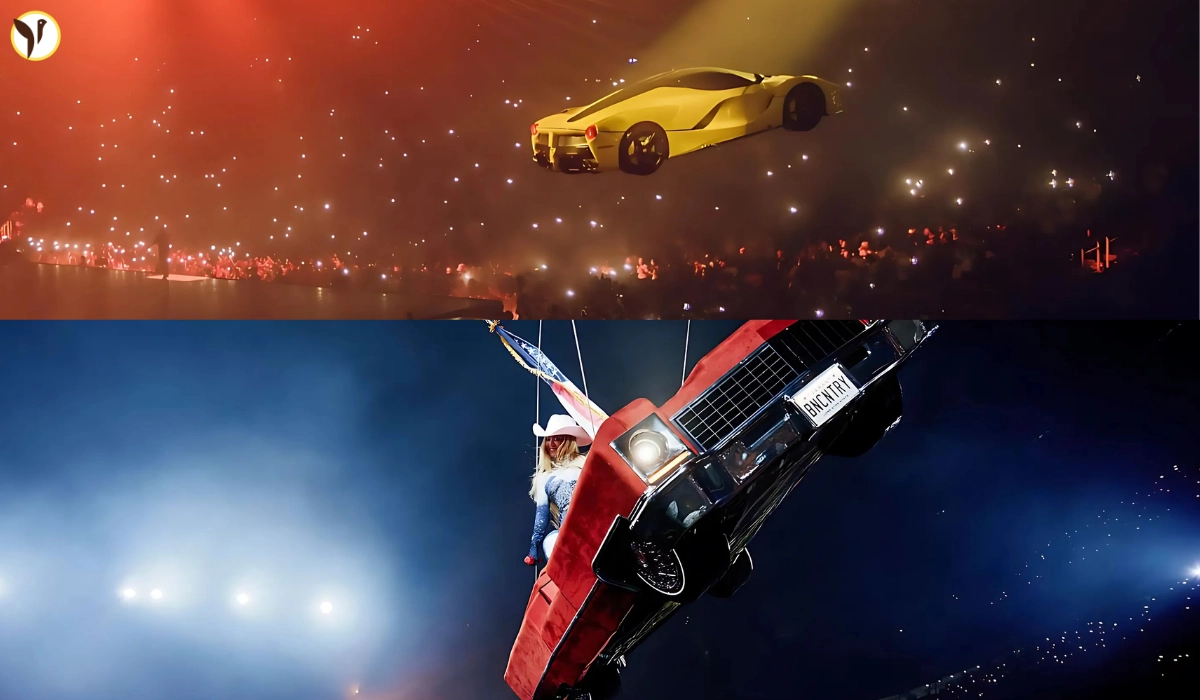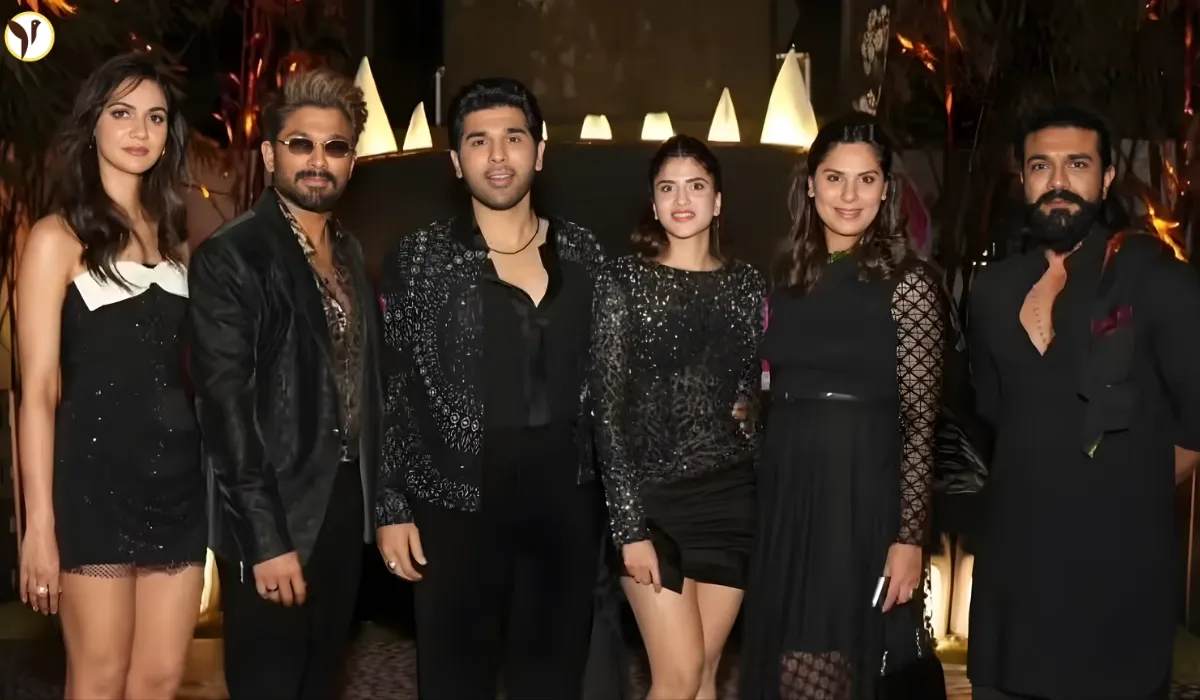During Beyoncé's recent concert in Houston, her stage prop that looked like a flying car broke down mid-show and lasted a little longer than awkwardly long when she was stuck above the stage. Everybody else on the stage moved about, but she was contained until the crew could descend her safely and she could get back to her performance. The moment immediately went viral and sparked fan reactions as well as larger conversations about the role of technology in live music shows.
As the world of live music starts adopting even more and more technology, it does raise the question when the sight of a "flying car" appears in an arena, are real flying vehicles going to happen in live concerts in our future?
At the moment — the answer appears to be "no" — for now, anyway.
Beyoncé's "flying car" was not really a flying car, it was merely a special stage prop which used wires to hang it in the air -- this is a method commonly employed in arena tours to provide an impactful illusion. The actual flying mechanism and movement would be overseen by a rigging team committed to the project, which allows the aircraft to be airborne with illusion without actual thrust underneath.
Real flying cars, the type that house e-engines and are capable of vertical takeoff and landing, are still in the works -- known as eVTOLs (electric vertical takeoff and landing aircraft), it appears that they are being made by OEMs such as XPeng AeroHT, Alef Aeronautics and SkyDrive. Their focus is far from entertainment and far more edged toward transport.
These vehicles are still in testing, regulatory approval and most likely will not enter commercial usage until at least 2025 or so. Even so, it is likely their use will be restricted to air taxis and private transport - not flying over a few thousand concertgoers indoors.
Step into the future of transportation with the “Land Aircraft Carrier” flying car. A new way to travel has arrived! #XPENGAEROHT #FlyingCar #Tech #LandAircraftCarrier pic.twitter.com/7tPYeI0bIy
— XPENG AEROHT (@XPENG_AEROHT) September 6, 2024
For live shows, the risks associated with using real flying vehicles are still too high. Concert venues tend to be crowded, unpredictable environments. Because of safety, insurance and airspace regulations, we are a long way from actually having flying cars at shows.
All this said, technology has already begun to impact what concerts look like. Shows with drone displays, LED walls and floating stage configurations are becoming more common. Consider the innovation of audio-visual equipment companies to make prop “flying cars” out of foam or light materials that can be remote controlled for indoor components of lighter weight; and as props, they are safe. To many, a “flying car” might suggest something of the future; however, they are more similar to school projects than actual functioning aircraft.
Some innovation is taking place in the performance side of aviation. For example, the Airspeeder racing series uses actual electric flying vehicles, in a controlled racing event format. However, those events operate in very regulated airspace (not to mention not part of mainstream entertainment).
In brief, flying cars may eventually make their way into live entertainment in some capacity, but at this time, they are more of a concept of science fiction in terms of concerts. What fans were actually seeing in Beyoncé’s concert was less about flying than a spectacle.









